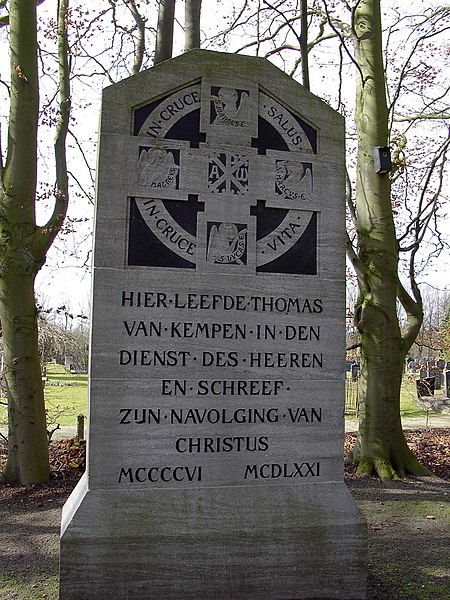The Imitation of Christ, by Thomas à Kempis, is a Christian devotional book first composed in Medieval Latin as De Imitatione Christi. The devotional text is divided into four books of detailed spiritual instructions: (i) "Helpful Counsels of the Spiritual Life", (ii) "Directives for the Interior Life", (iii) "On Interior Consolation", and (iv) "On the Blessed Sacrament". The devotional approach of The Imitation of Christ emphasises the interior life and withdrawal from the mundanities of the world, as opposed to the active imitation of Christ practised by other friars. The devotions of the books emphasize devotion to the Eucharist as the key element of spiritual life.
Modern photo of Windesheim (Netherlands), where Devotio Moderna took root
An 1874 edition from Tours, France
Chap. 1 from The Imitation of Christ, Chapman & Hall (1878)
The 1505 edition, Museum Catharijneconvent, Utrecht, the Netherlands
Thomas à Kempis, CRV was a German-Dutch Catholic canon regular of the late medieval period and the author of The Imitation of Christ, published anonymously in Latin in the Netherlands c. 1418–1427, one of the most popular and best known Christian devotional books. His name means "Thomas of Kempen", Kempen being his home town.
Thomas à Kempis
Monument on Mount Saint Agnes in Zwolle "Here lived Thomas van Kempen in the service of the Lord and wrote his Imitation of Christ, 1406–1471"
The reliquary with the relics of Thomas à Kempis
Excerpt from the manuscript "Opera" (Works), written by Thomas à Kempis in the 2nd half of the 15th century








